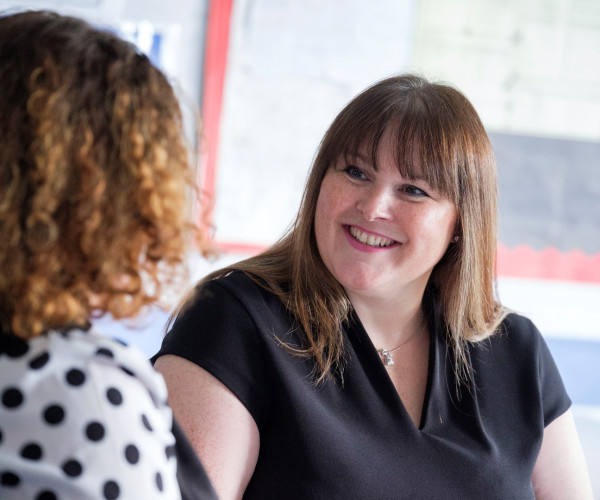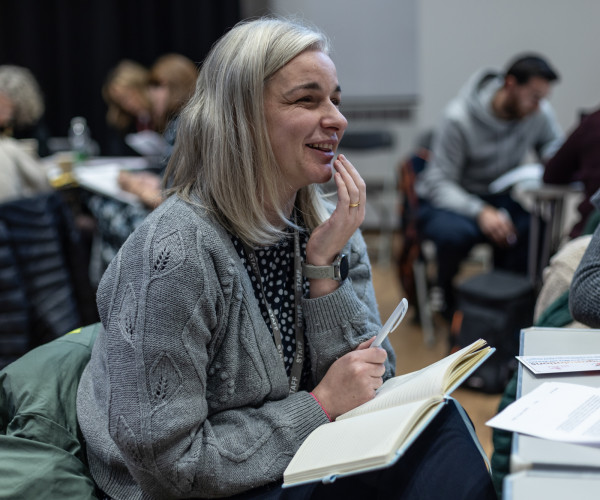Spotlight on Behaviour Curriculum
Posted 4th September 2023
Tim Milburn, Headteacher at Rossett School, shares plans for the implementation of a Behaviour Curriculum
This summer I discovered the magic of Disneyland. People had warned me about it. They had told me of the world of wonder that I was about to experience. However, it wasn’t the fireworks, the parades or even the chance to have my photo taken with Mickey Mouse that mesmerized me. I am, after all a teacher. I get pleasure from organisation, order and routine and this, for me, was the real magic of Disneyland!
Each day around 50,000 people, of all ages, arrive at the park. There is palpable excitement at the entrance as people join long, snaking queues, with their tickets, passes or phones at the ready. As I joined the back of the queue, rummaging for my pass and preparing to get annoyed at the long wait to get into the park, I quickly realised two things. Firstly, I had joined a queue without really realising it and secondly, I had now arrived at the front of the queue in no time at all. I was then met by the friendliest of staff. They all seemed as excited to welcome each patient guest, as we were to get inside and enjoy the attractions.
Inside the park, at every point we turned, at every queue we joined, the experience was the same. Even as a new visitor I quickly knew what I was doing, where I was going and what was expected of me. I was expertly guided, directed and supported. Behind the enchantment and the whimsy that attracts so many people each year, the enduring success of parks such as this is the careful management of people’s behaviour. As I waited patiently to ride the new Avengers Assemble rollercoaster I started to think about school.
A new academic year always brings behaviour back into focus. Getting this right is so important for everyone as a recent, national survey highlighted.
- On average, teachers reported that for every 30 minutes of lesson time, 6.3 minutes were lost due to misbehaviour. The majority of teachers (69%) reported that between one and ten minutes were lost per 30 minutes of lesson time. This was similar between primary and secondary school teachers.
(National behaviour survey: Findings from Academic Year 2021/22, Department for Education 2023)
You can guarantee that in those first few days in September school leaders will be taking every opportunity to give clarity about policy, systems and procedures and seeking consistency as key messages are given on mass.
At Rossett School we are no different. We have made this a key priority for school improvement and this year we are introducing a behaviour curriculum. This defines the behaviours we expect of everyone but also teaches our students the routines and habits that reinforce these behaviours. In doing so we have approached its introduction in much the same way as any other curriculum that has been designed.
Our starting point was to establish a set of core values that apply to everyone who belongs to our community. We engaged with students, staff, parents and governors to distil what is important to our school. Having agreed on this we set about making them part of the fabric of the school, beginning with our walls. Their visibility in school, on corridor displays and, in the classroom, provide a consistent, common language. This shared, social contract makes clear the expectations we have of one another and will enable us to hold each other to account.
Having an established set of values has allowed us to revisit and rewrite our key policies, including our ‘Respectful Relationships and Behaviour Policy’. Our core values have given us clarity about our expectations, procedures and systems but most importantly our approach, an approach built on effective relationships.
The real magic in a teacher’s toolkit is the ability to build relationships. Establishing relationships with a class of 30 young people, all with different backgrounds, interests, abilities, and getting them engaged, enthused and learning is no mean feat. To do this, day in day out, requires trust. Young people need to trust the adults around them. This is achieved through clear, unambiguous expectations, along with consistency and routine.
This year we have introduced six steps to success. These are lesson routines for all teachers to use in their classroom. Students will experience the same routines regardless of which lesson they are being taught. The six steps are rooted in our values, reinforcing why this is important to everyone being successful. Our six steps are:
- Strong start – This includes a ‘meet and greet’ at the door, where students are warmly welcomed into the classroom. Any issues can be remedied quickly so as not to interrupt learning. Students sit in an agreed seating plan and automatically engage in the first activity.
- Do now task – This short task, which encourages retrieval of prior knowledge, and done in silence, establishes the conditions for learning to take place.
- STAR – When discursive activities are being used expectations are made clear to all. Students must sit up, track the speaker, ask and answer questions by always raising hands and respecting others.
- Silent and solo – Independent work is set so students can concentrate without interruption and so the teacher can circulate and support.
- Transitions and attention – When student attention is needed then a clear signal is given by the teacher.
- Exit routines – The students take responsibility for their environment and for themselves. They check to make sure the classroom is ready for the next group, and they check themselves to make sure they are ready and smart for their next lesson. The teacher then, calmly and orderly, dismisses the group.
The training schedule for the year is planned around our new behaviour curriculum and this starts with the days before students return. All staff will understand the why and the how of our behaviour expectations and we will give them time to practise and rehearse the associated routines. There is also time to look at strategies for managing behaviour, aside from these routines. We will encourage staff to promote what is expected of students and reinforce with recognition and reward when students are getting it right. Strategies for managing misbehaviour have also been included. We want staff to feel empowered to manage this themselves, as part of building sustainable, effective relationships, but know how and when to seek support.
There will be points throughout the year where we will be able to measure the impact, be it metrics, stakeholder feedback or external reviews but what I will be looking for is the same magic I experienced this summer at Disneyland. Routine, consistency, warmth and enthusiasm resulting in all students doing what is expected of them as they excitedly, queue at their classroom door.





